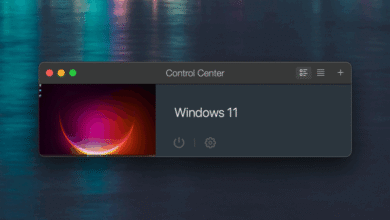Unsuspecting Dad Pays $1,200 for Vintage Gaming PC for Son: Discover the Shocking Twist!

A Cautionary Tale: The Reality of Buying a Gaming PC
In today’s world, technology evolves at lightning speed. For many parents, buying their children the latest gadgets, especially gaming PCs, can be a way to show love and support for their interests. One father recently found himself in an unfortunate situation after purchasing a gaming PC for his son for $1,200, only to discover that the hardware inside was outdated by over a decade. This scenario raises crucial points about consumer awareness, the tech market, and informed purchasing decisions.
The Rise of Gaming PCs
Gaming has transformed from a niche hobby to a mainstream entertainment platform. With competitive gaming, streaming, and the rise of virtual reality (VR), the demand for high-performance gaming PCs has surged. Gamers require machines that can handle demanding software, provide smooth graphics, and offer immersive experiences. However, not all hardware marketed as gaming-ready is truly high-performance or current.
The Father’s Good Intentions
This tale centers around a father who, wanting to please his tech-savvy son, set out to acquire a powerful gaming computer. Without acknowledging the fast-paced evolution of PC hardware, he assumed that spending $1,200 would guarantee a top-tier machine. Unfortunately, this common misconception tends to lead many consumers astray, often resulting in disappointing purchases and unsatisfactory performance.
The Deceptive Nature of Retail Marketing
In the competitive world of gaming technology, marketing tactics often play on consumer emotions. Retailers may promote systems heavily based on superficial specifications—like flashy graphics cards—rather than the comprehensive performance of the system when integrating all hardware components. Often, older parts can be bundled into systems, marketed as “gaming PCs,” without a true understanding of how these components will perform together.
This father’s experience illustrates the importance of doing diligent research before making high-value purchases. It’s vital to look beyond marketing claims and advertisements to understand what you’re genuinely getting for your money. Consumers should take the time to read reviews, compare specs, and examine how newer components work better together than outdated options.
Understanding Hardware Lifespans
Technology typically has a lifecycle, and PC hardware is no exception. Components like CPUs, graphics cards, and motherboards become outdated quickly due to rapid advancements in technology. The father here failed to comprehend that hardware made over 10 years ago would lag significantly behind in performance compared to current models.
To put this into perspective, consider the following elements:
– **CPUs (Central Processing Units)**: The heart of the computer, CPUs have evolved so dramatically that multi-core processors with higher clock speeds have become the norm, providing incredible gains in speed and efficiency.
– **GPUs (Graphics Processing Units)**: Essential for gaming, GPUs see frequent advancements that greatly enhance gameplay, especially concerning frame rates and resolution. An older GPU can’t run modern games on high settings effectively.
– **Storage Solutions**: Solid-state drives (SSDs) have largely replaced traditional hard disk drives (HDDs). SSDs offer faster read and write speeds that significantly affect load times and overall system responsiveness.
Each of these components directly affects gaming performance, and outdated hardware fails to meet current software requirements, leading to frustration and disappointment.
The Importance of Research
Before diving into an expensive purchase, it’s crucial to conduct thorough research. Here are some steps to consider:
1. **Self-Education**: Familiarize yourself with current gaming hardware. Online forums, reviews, and tech websites can provide a wealth of information.
2. **Community Input**: Engage with gaming communities, both online and offline. They can share personal experiences, preferences, and recommendations regarding specific components.
3. **Benchmarking Scores**: Look for benchmarks comparing various components. They provide insights into how hardware performs in real-world gaming scenarios.
4. **Avoiding Bundles**: Sometimes, what seems like a fantastic deal on a gaming PC is nothing but a collection of outdated parts. Evaluate each component’s specifications individually before committing to a purchase.
The Aftermath for the Father and Son
Imagine the son’s excitement upon receiving what he thought was a high-end gaming machine, only for it to gradually morph into disappointment as games lagged, crashed, or never succeeded in reaching optimal settings. The father’s well-meaning gesture could unintentionally strain their relationship as the young gamer spirals into frustration about his gaming experiences.
This case exemplifies the miscommunication that can occur between parents and children in today’s technology-driven world. It serves as a reminder for parents to cultivate open dialogues about technology with their children. Understanding gaming norms, current hardware trends, and what constitutes an effective gaming rig can significantly influence positive purchasing decisions.
Alternative Options
As a resolution to a situation like this, what can one do if they find themselves with outdated hardware? Here are some alternatives:
1. **Upgrade Components**: In some cases, older PCs can be revived by replacing key components, such as the GPU or adding an SSD. This option may extend the life of the system and improve performance without starting from scratch.
2. **Consider Pre-Built Systems**: There are reliable builders who focus on creating high-performance systems for gaming. Researching reputable brands can help ensure you invest in a machine with modern specifications.
3. **Build Your Own PC**: For those willing to invest time in learning, building your own gaming PC can be a rewarding alternative. It allows you to select each part tailored to your specific gaming needs and budget, offering control over quality and performance.
4. **Buying Second-Hand**: For a thrifty yet high-performance option, consider certified refurbished PCs or components. Be cautious about thorough testing and reliability but stay within reasonable pricing to get modern hardware.
Conclusion: Learning from the Experience
Ultimately, this father’s story serves as a critical reminder of the necessity for consumer awareness in the fast-evolving technology landscape. With a combination of well-informed choices, diligent research, and conversation, buyers can avoid pitfalls in the gaming PC market.
To encapsulate, here are the primary takeaways from this blog:
- Understand the rapid evolution of technology and how quickly hardware becomes outdated.
- Conduct thorough research before purchasing, focusing on individual hardware components and their performance.
- Engage with communities and forums to gain insights about effective gaming PCs and advice from experienced users.
- Be aware of misleading marketing strategies and differentiate between high-quality and low-quality systems.
- Look for options like upgrading components, considering pre-built systems, or building your own for the best value.
In conclusion, knowledge is power. In a world as dynamic as technology, empowering oneself with information is the best way to ensure that any investment—especially when it comes to cherished hobbies like gaming—pays off in enjoyment and satisfaction.





